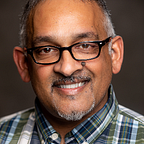Mathematics: We Are Lost Together
It took Julia Robinson and her mathematical team of four, 22 years to crack Hilbert’s Tenth problem, one of 23 he passionately and optimistically issued at the International Congress of Mathematicians in Paris in the summer of 1900.
His clarion call to mathematicians to penetrate the future of mathematics has reverberated ever since.
“Who of us would not be glad to lift the veil behind which the future lies hidden; to cast a glance at the next advances of our science and at the secrets of its development during future centuries? What particular goals will there be toward which the leading mathematical spirits of coming generations will strive? What new methods and new facts in the wide and rich field of mathematical thought will the new centuries disclose? “
David Hilbert, August 1900
A recent one hour movie based on Julia Robinson and her burning desire to resolve this problem in her lifetime has just been released. Below is the trailer.
Mathematics, quite simply, is about problems. Some are easy. Some are so challenging that the mathematics needed to solve them might not be discovered yet. This was the fate of how Andrew Wiles finally cracked Fermat’s Last Theorem, where he cleverly fused ideas of the 20th century. So, as much as Fermat hinted at a possible solution, it is highly unlikely that he had the proof. In an interview with NOVA, Wiles gave a very realistic insight into his poorly lit immersion into Fermat’s Last Theorem.
Perhaps I can best describe my experience of doing mathematics in terms of a journey through a dark unexplored mansion. You enter the first room of the mansion and it’s completely dark. You stumble around bumping into the furniture, but gradually you learn where each piece of furniture is. Finally, after six months or so, you find the light switch, you turn it on, and suddenly it’s all illuminated. You can see exactly where you were. Then you move into the next room and spend another six months in the dark. So each of these breakthroughs, while sometimes they’re momentary, sometimes over a period of a day or two, they are the culmination of — and couldn’t exist without — the many months of stumbling around in the dark that proceed them.
I counted the use of “dark” four times. Mathematics is a journey. That is something that we all agree upon. However, the narrative which has been adopted by math education has been one that makes that journey seem unrealistically lighted and linear. While there is more dialogue now around productive struggle — all struggle is good — and failure, math education continues to be obsessed with discrete packets of success. As such, both students and teachers feel anguish/anxiety if correct answers are not found — quickly.
If by the time students get to high school and have not been given problem(s) that take days or even weeks to solve, then this journey through mathematics has been more tourist in nature than traveler.
My title at Buzzmath, the digital company I work for, is Mathematics Learning Specialist. I am not a teaching specialist. I am not an expert. I excel at devouring knowledge to reassure myself that when it comes to mathematics, I will always be a novice.
We all will be. We are all wonderfully lost together. But, we can only truly believe that if we believe that with mathematics we all start in the dark. And while of course we are curiously driven by our collective desire to know, we should not measure ourselves or mathematics for any conditional reveal. Did Julia Robinson feel less of mathematics in her 20th year with Hilbert’s Tenth Problem than when she solved it? Sure, there was jubilation, but her attitude towards the inherited darkness of mathematics probably did not flinch one bit.
How deep do I feel about this communal celebration of seeing mathematics as an endeavor of finding light? It will be the introduction to my next book, Chasing Rabbits: A Curious Guide to a Lifetime of Mathematical Wellness(2021)
In many ways, mathematics is like those Escape Rooms — which by the way, I have never successfully completed! You might have a goal, but really, you are really enjoying being in the moment of the perplexities that confront you and your team. If you crack it, you crack it. If you don’t, you don’t. Pressure should be fun, not a weight to negate the experience.
Let’s teach mathematics with more darkness. The light? That is provided by us…
